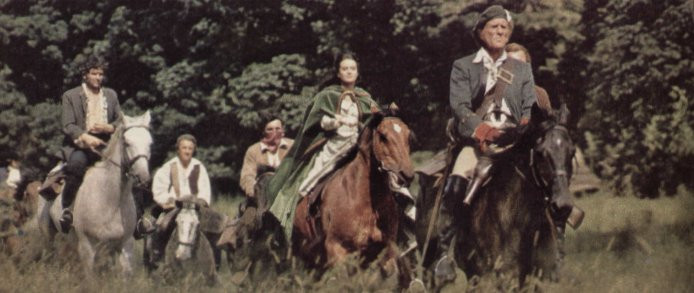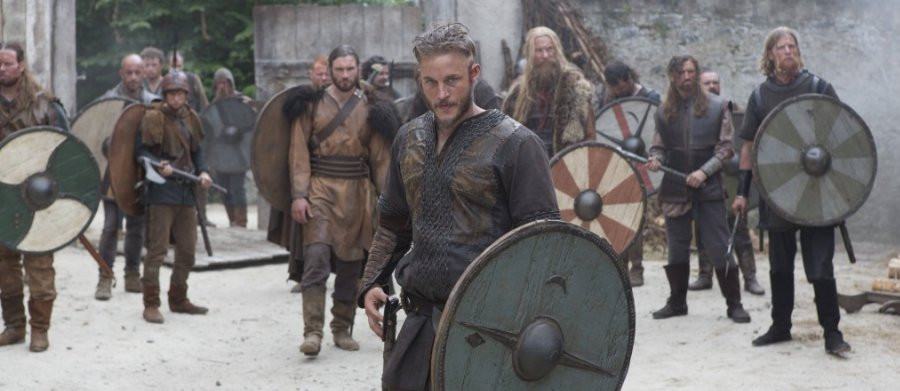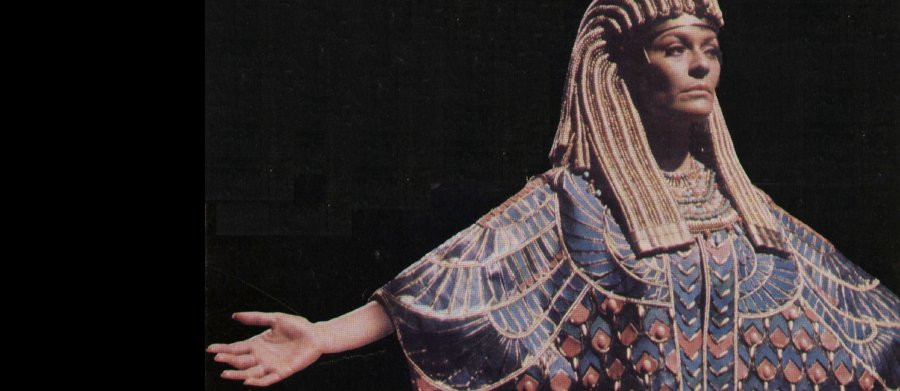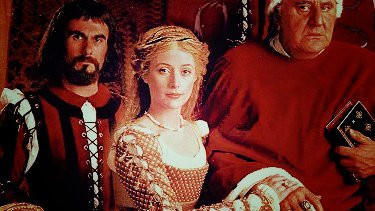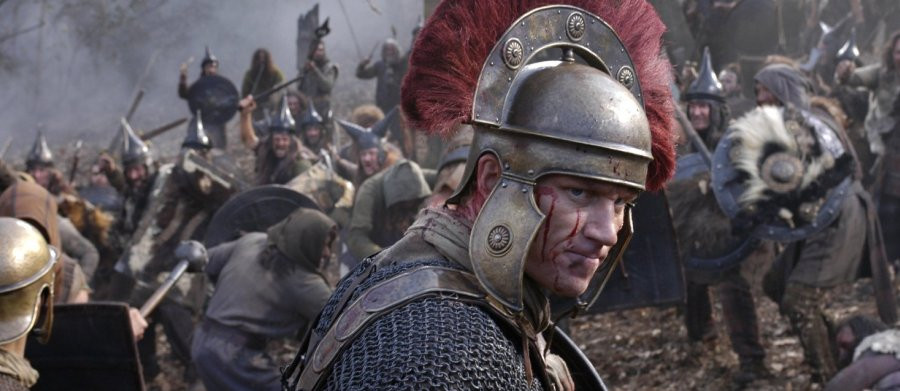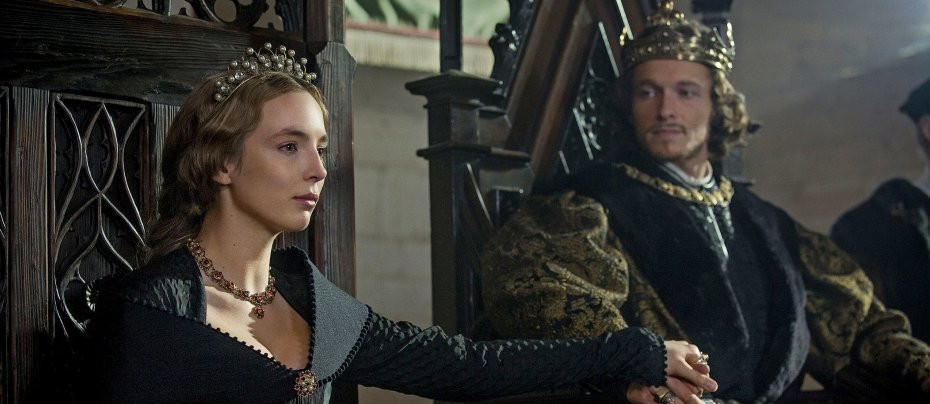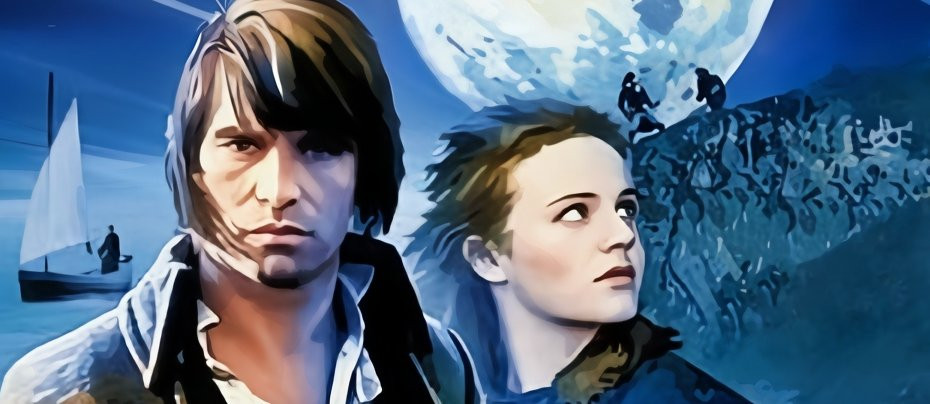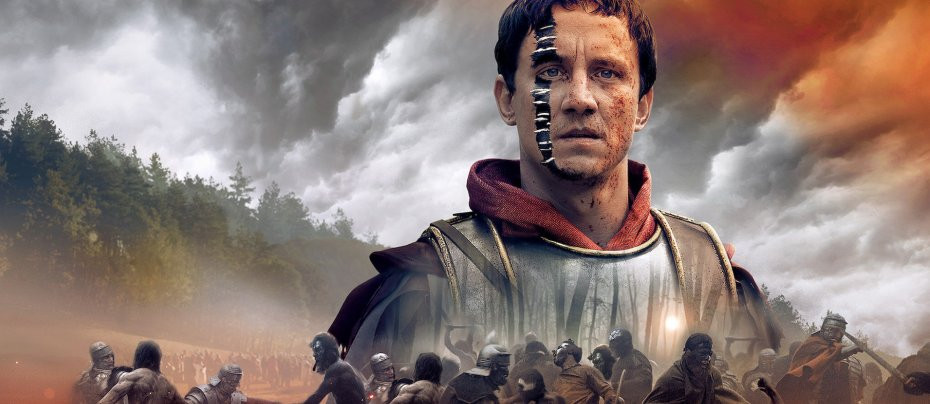
Barbarians
2020 - GermanyThe German series 'Barbaren,' or 'Barbarians' in English, deserves credit as a good recent example of the benefits of what seems a lost art in Anglophone historical drama at the moment - trying to keep within established facts. As a result its dramatic impact is increased by the knowledge that it is, or at least could be, true.
This is an introduction to the first season of 'Barbarians' - a second has been ordered - which deals with events leading up to the Battle of the Teutoburg Forest in 9 AD, an event of great significance in German history which is not as well known as it ought to be outside Germany.
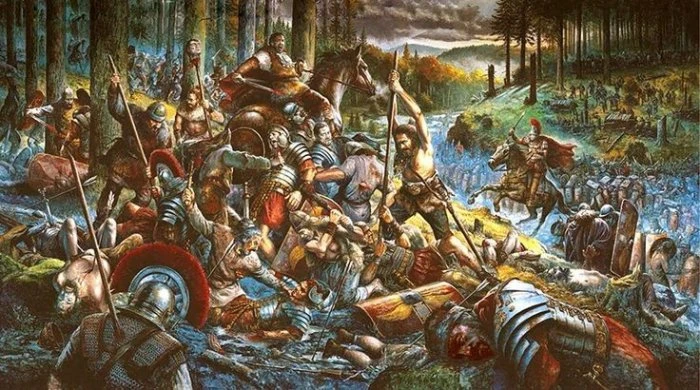
Many reputable military historians consider Teutoburg Forest to be one of the decisive battles of world history. Rome had suffered worse defeats and come back stronger. Indeed, the Romans avenged Teutoburg Forest almost immediately with a series of devastating punitive expeditions. What they did not do was attempt to re-establish the frontier on the Elbe that had been secured by some spectacular campaigns in the preceding years. The rapid expansion phase of the Empire ended in the Teutoburg Forest. Caesar Augustus himself was shaken by the defeat and recommended to his successor, Tiberius, who had been hugely successful in those same campaigns, that the Empire should remain within its natural frontiers. In Europe, that meant the Rhine and the Danube. Tiberius complied. While his own successors Gaius "Caligula" and Claudius resumed expansion, it was on a less ambitious scale, and the continuing "forward policy" of the Romans in Germany over the next two centuries usually stopped short of attempting permanent occupation.
As a result, the Germans retained their own distinctive culture and brought it with them when, much later, they invaded the Roman Empire in their turn. Although the Empire would almost certainly still have fallen if Teutoburg Forest had never been fought, what took its place would have been very different and the repercussions would be with us to this day. For one thing this review would not be written in English.
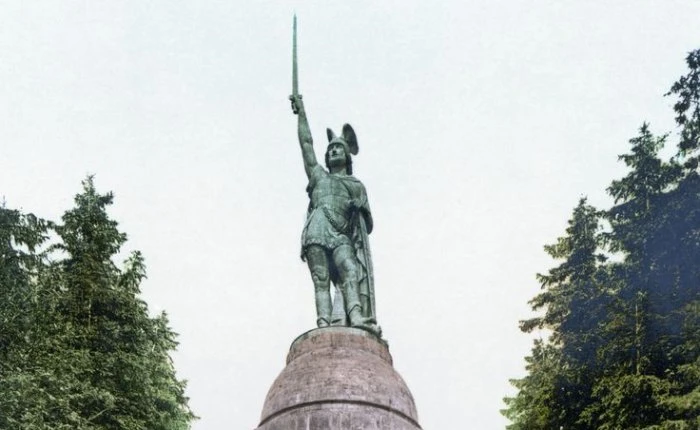
Teutoburg Forest was of particular significance to the German nationalist movement of the 19th Century. It represented the coming together of the feuding German tribes, and the triumph of free, manly "Germanic peoples" over supposedly corrupt Mediterranean civilisation, which in the 19th Century implied France. The parallels with von Bismarck's policies of the time were clear to all. Arminius, the commander of the Germans in the battle, became a national hero.
It cannot be denied that traces of that ideology remain in 'Barbarians,' even if there are deliberate efforts to tone it down - at one point, a character says that Germany was a nation invented by the Romans because they could not tell the difference between the various tribes: there may be truth to that, even if it is unlikely a tribesman would have said it like that at the time.
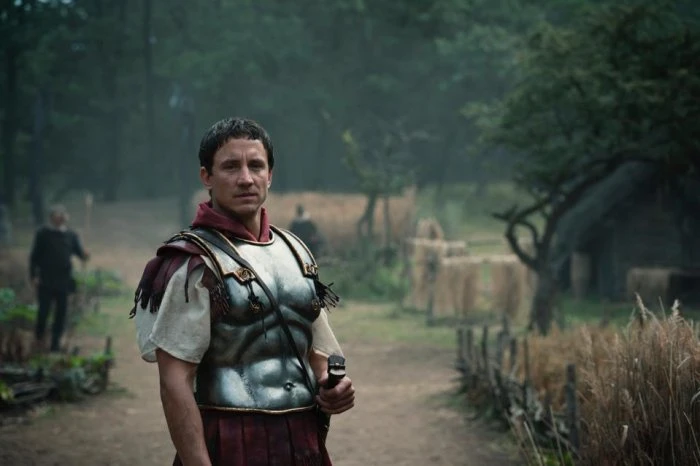
Perhaps for the same reason, Arminius (Laurence Rupp) is not shown as a particularly heroic figure. The script is true to history in showing him as Roman educated and an experienced Roman soldier. He was awarded Roman citizenship and, as shown, appointed to the Order of Knights in recognition for his services to Rome. His apologists try to explain this by suggesting he was either changed when he returned to Germany and saw the suffering of his own people or was working deep under cover the whole time to subvert his Roman masters. Neither is as likely as what 'Barbarians' proposes, that he rather enjoyed being a Roman but saw a limit to how high a "barbarian" could rise in the class obsessed Roman system at that time.
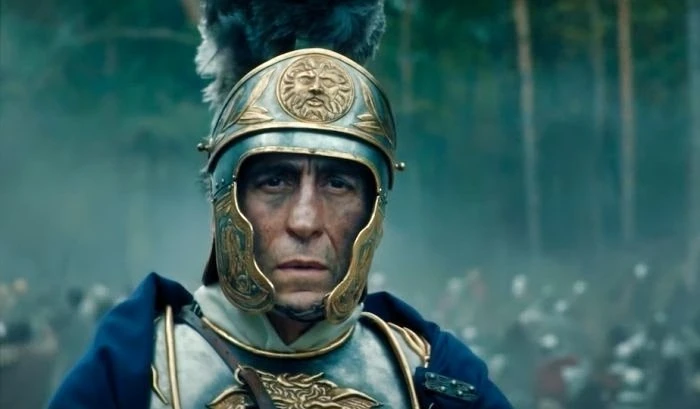
The script gives him a wholly fictitious personal link with the Roman Governor P Quinctilius Varus, setting up a choice between his real and adoptive fathers. In fact, while Varus (Gaetano Aronica) got on well with Arminius and seems, very unwisely, to have trusted him completely, there is no evidence that their relationship was anything more than that between a colonial administrator and an apparently friendly native prince.
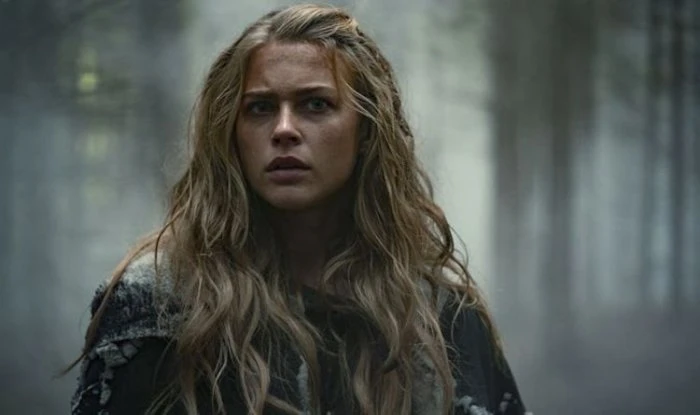
Arminius is also shown as part of a fictional love triangle with his historical wife Thusnelda (Jeanne Goursaud) and their made-up childhood friend who is given the superbly evocative name Folkwin Wolfspeer (David Schutter). Folkwin and Thusnelda are set up as the real hero and heroine, but they come across as annoying idiots. Their headstrong and needlessly provocative temper tantrums result in needless deaths and suffering, above all among their own families and inexplicably loyal friends. At no point do they stop and reflect on this.
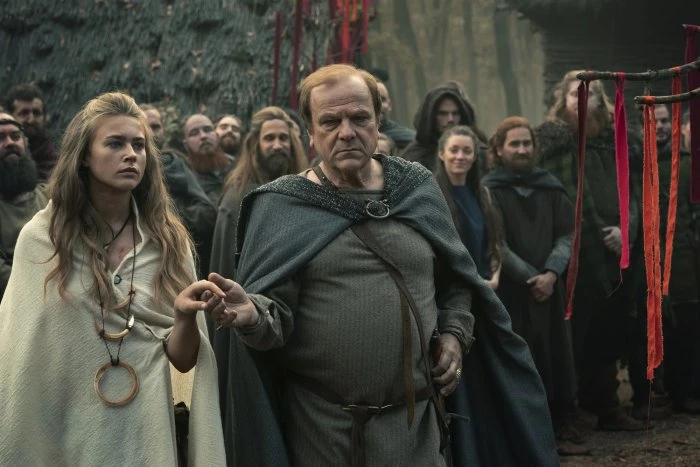
Far more sympathetic is Arminius' real father and tribal chief, Segimer (Nicki von Tempelhoff), whose dilemma is shown all too credibly: he and his people must suffer endless exactions and humiliations at the hands of the Romans in the certain knowledge that the alternative is even greater suffering and possible extermination. As leader, he must sacrifice his pride for his people. 'Barbarians' has him sacrifice more, even if the Roman historian Cassius Dio has him at his son's side in the Teutoburg Forest.
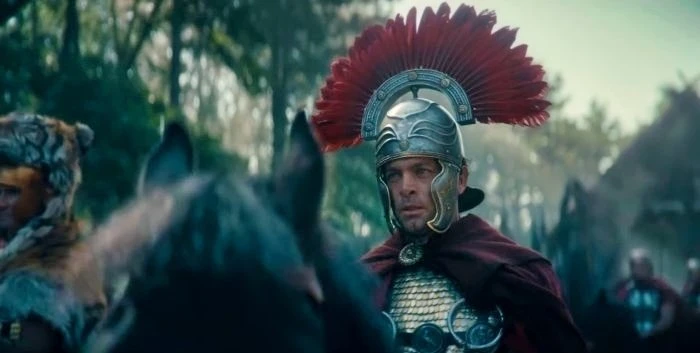
Arminius' father-in-law, Segestes (Bernard Schutz), practically has the word "Villain" stamped on his forehead, not least because he advocates collaboration with the Romans, but given the situation when we join the story that was the only sensible option. The incredible achievements of the Roman legions in Germany in the immediately preceding years had given them the aura of invincibility, and there was at first no serious prospect of the German tribes co-operating against them, points well made in the script.
The Romans are portrayed, like all Imperial powers in drama, as consistently arrogant, stupid, and greedy. They were not. They would not get to be Imperial powers if they were. The Romans had a shrewd grasp of German politics and were expert at playing local rulers off against each other. What the evidence suggests is that Varus was singularly heavy handed and inept, and was viewed as such even by the Romans themselves, at least in retrospect. It is said that Caesar Augustus was so angry with him after he heard of Teutoburg Forest that periodically he would shout out at no one in particular "Quinctilius Varus! Where are my legions?"
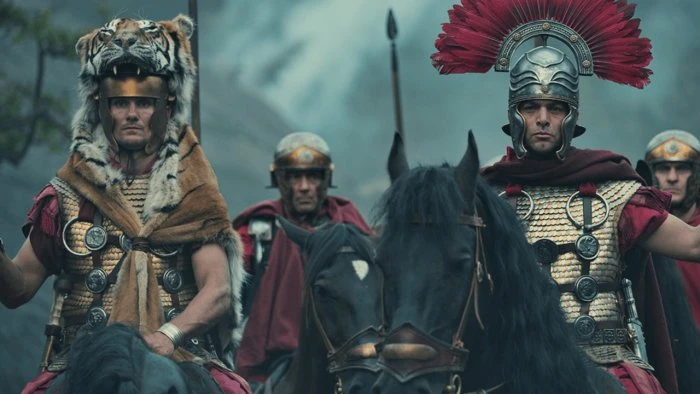
Otherwise the Romans are depicted accurately. The uniforms and equipment have obviously been researched thoroughly, even if some might date from a slightly later period. The Roman characters actually speak in Latin, which is not entirely free of errors but brings home the cultural chasm between them and the German characters, who, in the original undubbed version, speak modern German rather than the Proto-Germanic of their ancestors.
The accuracy of the depiction of the Germans is more controversial, especially since the only written sources we have from the period are Roman. There are huge gaps in our knowledge and the writers have taken the liberty of trying to fill those gaps with concepts from later German and Nordic culture. It cannot be proved that they are wrong in this but neither can it be assumed they are on the right track.
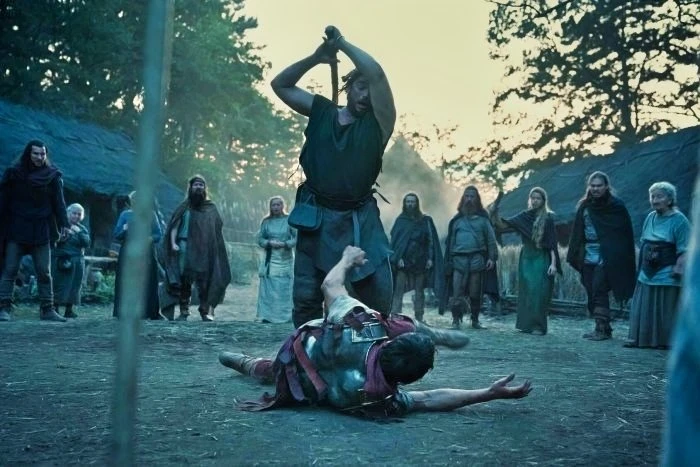
The limits of television budgets require that the stories of whole tribes boil down to single villages. It is almost certain that German tribal capitals were more advanced and complex cultures than they appear in 'Barbarians.' They would also have been wealthier. In any case, complaints about poverty in the dialogue have a hollow note when one cannot help observing that many of the cast are rather on the portly side. This is unlikely to reflect historical reality.
While it might be thought pandering to 21st Century fashion, the script is in fact correct in portraying German women enjoying much higher status than their Roman equivalents. This is recorded by the Roman historian Tacitus with a definite tone of disapproval. He even claims, with considerable disgust, that one tribe was a matriarchy. It was not unusual for German women to accompany their husbands on campaign, even if their lack of physical bulk probably prevented them from joining the men on the battle lines as Thusnelda does in 'Barbarians.'
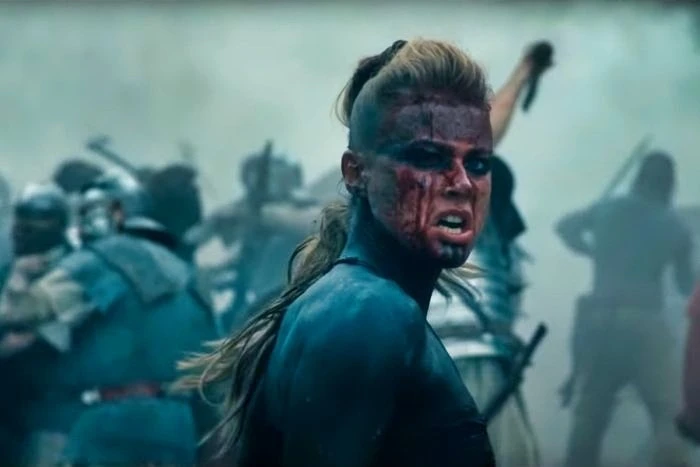
The fight scenes look authentic, especially the final battle. The importance of tactics and organisation is clear. Although the sequence of events is not exact, we are given a fine sense of the seemingly irresistible power of three Roman legions on the march, and then their disintegration as they were broken up in the forest and defeated in detail. That is basically what happened and it is illustrated convincingly. The editing and direction throughout maintain both tension and pace. The script gets all the necessary information and characterisation across with commendable economy. The actors all look their parts and their performances are solid. There is some humour and ultimately a surprising emotional strength, in spite of the constant brutality on all sides. One even ends up feeling just a little bit sorry for Varus when he realises how comprehensively he has been betrayed.
The problem with ending the season on the high note of one of the great battles of world history is that one wonders where the show can go from here. History does in fact offer a lot more battles, but obviously nothing like the triumph of Teutoburg Forest. Their victory left the Germans on the defensive against the retaliatory expeditions of the Romans under Tiberius and Germanicus which caused immense suffering. The stories of Arminius and Thusnelda after Teutoburg Forest are full of incident but not exactly cheerful. On a happier note, we will doubtless get to meet Flavus, the little brother who went to Rome with Arminius - in 'Barbarians' and in real life, in which he took a very different path from his older brother. History therefore offers a lot of promising raw material for the next season, if the writers stick to their sensible policy of remaining broadly within its boundaries.
Review: John Winterson Richards
John Winterson Richards is the author of the 'Xenophobe's Guide to the Welsh' and the 'Bluffer's Guide to Small Business,' both of which have been reprinted more than twenty times in English and translated into several other languages. He was editor of the latest Bluffer's Guide to Management and, as a freelance writer, has had over 500 commissioned articles published.
He is also the author of ‘How to Build Your Own Pyramid: A Practical Guide to Organisational Structures' and co-author of 'The Context of Christ: the History and Politics of Rome and Judea, 100 BC - 33 AD,' as well as the author of several novels under the name Charles Cromwell, all of which can be downloaded from Amazon. John has also written over 100 reviews for Television Heaven.
John's Website can be found here: John Winterson Richards
Seen this show? How do you rate it?
Seen this show? How do you rate it?
Published on November 27th, 2021. Written by John Winterson Richards for Television Heaven.



